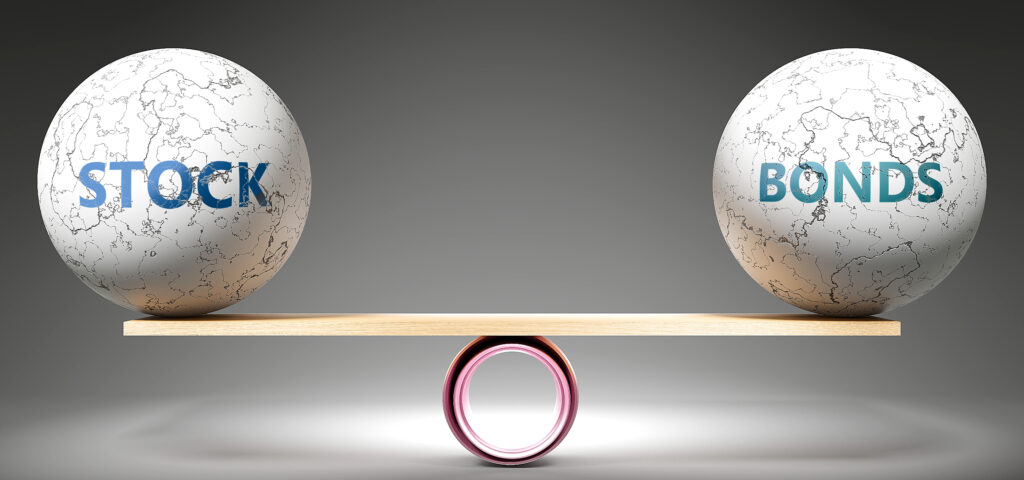Is Your Career a Stock or a Bond

Is Your Career a Stock or a Bond
Provided by Paul Andrus
www.PaulRayAndrus.NYLAgents.comPosted: 8/9/11
Stocks, bonds, and cash each have a different level of volatility. It’s important to know each investment’s risk profile so that you can diversify your portfolio with assets that form a spectrum of risk/reward scenarios. The same holds true for your human capital. Have you considered the risk profile of your human capital in your overall financial strategy?
Human Capital Defined
Human capital is the present value of expected future labor income; in other words, your earnings potential. You convert human capital into financial capital throughout your career by saving and investing some of your earnings in traditional investments such as stocks, bonds, real estate, and cash. These assets make up your financial capital, and, when combined with your human capital, give you a more complete picture of your total economic wealth.
Determining Your Human Capital Risk Profile
Like traditional assets, human capital also has a certain risk profile, ranging from stable and low-risk (bond-like), as in the case of a tenured university professor or government employee, to risky and volatile (stock-like), such as a commissions-based stockbroker, freelance consultant, or an entrepreneur.
Human Capital
Managing the Risk Profile of Your Total Economic Wealth
Just as you allocate your financial capital across investments with different risk profiles for diversification, you should also balance your human capital and financial capital so that your total economic wealth matches your overall risk tolerance. This means that, if you have a bond-like profession, you might consider investing your financial capital in slightly more aggressive traditional assets. Conversely, a stock-like career might allow for you to become a little more conservative with your assets.
Allocating Your Financial Capital to Meet Your Overall Risk Profile
Consider Bill, an investor who wants to properly allocate his assets according to his risk profile.1 Bill’s total economic wealth is $2,000,000, with $1,000,000 in financial capital and $1,000,000 in human capital. Because Bill has a stable career as a government employee, his human capital is similar to a conservative portfolio of 80% bonds and 20% stocks. Therefore, Bill’s $1,000,000 in human capital is comparable to $800,000 in bonds and $200,000 in stocks. To achieve the proper asset allocation for his total economic wealth, Bill must include the allocation of his human capital to determine the allocation of his financial capital.
Economic Wealth
Take Action Today
To learn how to incorporate your human capital’s risk profile into your total economic wealth, please contact your representative. NYLIFE Securities LLC is a wholly owned subsidiary of New York Life Insurance Company.
This concept is derived with permission from Lifetime Financial Advice: Human Capital, Asset Allocation, and Insurance, by Roger G. Ibbotson, Moshe A. Milevsky, Peng Chen, and Kevin X. Zhu. 1 Hypothetical example intended for illustrative purposes only.
We hope you found this article about “Is Your Career a Stock or a Bond” helpful. If you have questions or need expert tax or family office advice that’s refreshingly objective (we never sell investments), please contact us or visit our Family office page or our website at www.GROCO.com. Unfortunately, we no longer give advice to other tax professionals gratis.
To receive our free newsletter, contact us here.
Subscribe to our YouTube Channel for more updates.

Alan Olsen, is the Host of the American Dreams Show and the Managing Partner of GROCO.com. GROCO is a premier family office and tax advisory firm located in the San Francisco Bay area serving clients all over the world.
Alan L. Olsen, CPA, Wikipedia Bio

GROCO.com is a proud sponsor of The American Dreams Show.

The American Dreams show was the brainchild of Alan Olsen, CPA, MBA. It was originally created to fill a specific need; often inexperienced entrepreneurs lacked basic information about raising capital and how to successfully start a business.
Alan sincerely wanted to respond to the many requests from aspiring entrepreneurs asking for the information and introductions they needed. But he had to find a way to help in which his venture capital clients and friends would not mind.
The American Dreams show became the solution, first as a radio show and now with YouTube videos as well. Always respectful of interview guest’s time, he’s able to give access to individuals information and inspiration previously inaccessible to the first-time entrepreneurs who need it most.
They can listen to venture capitalists and successful business people explain first-hand, how they got to where they are, how to start a company, how to overcome challenges, how they see the future evolving, opportunities, work-life balance and so much more..
American Dreams discusses many topics from some of the world’s most successful individuals about their secrets to life’s success. Topics from guest have included:
Creating purpose in life / Building a foundation for their life / Solving problems / Finding fulfillment through philanthropy and service / Becoming self-reliant / Enhancing effective leadership / Balancing family and work…

MyPaths.com (Also sponsored by GROCO) provides free access to content and world-class entrepreneurs, influencers and thought leaders’ personal success stories. To help you find your path in life to true, sustainable success & happiness. It’s mission statement:
In an increasingly complex and difficult world, we hope to help you find your personal path in life and build a strong foundation by learning how others found success and happiness. True and sustainable success and happiness are different for each one of us but possible, often despite significant challenges.
Our mission at MyPaths.com is to provide resources and firsthand accounts of how others found their paths in life, so you can do the same.
Another Senator Says It’s Time to Go After the Wealthy
Another Senator Says It’s Time to Go After the Wealthy We all know that death and taxes are two certainties in life. However it seems that we should probably add the argument that the wealthy should pay more taxes to that list of certainties. According to reports, Senator Bernie Sanders of Vermont recently shared his…
Make Sure You Report All of Your 1099 Income
With the job market continually fluctuating, it seems that more and more people are creating their own jobs. Whether it’s starting your own company, doing some extra business on the side, or working as a freelance private contractor, a growing number of individuals are earning self-employment income. The extra income is surely nice, whether it’s…
Five Tips to help You Save On Your 2014 Income Tax Bill
Although there are still more than two months to go before we turn the page on the year 2014, the end of the tax year is still fast approaching. While it’s true that April 15 may seem like a long ways off, the fact is you only have those precious two months left to still…
Need Tax Help for Your Multinational Business?
If you run an international or multinational business, whether it’s based in the United States or abroad, then you know the different intricacies that this situation can involve. Not only do you have to consider all the business and tax laws for the country in which you are based, but you also have to be…




